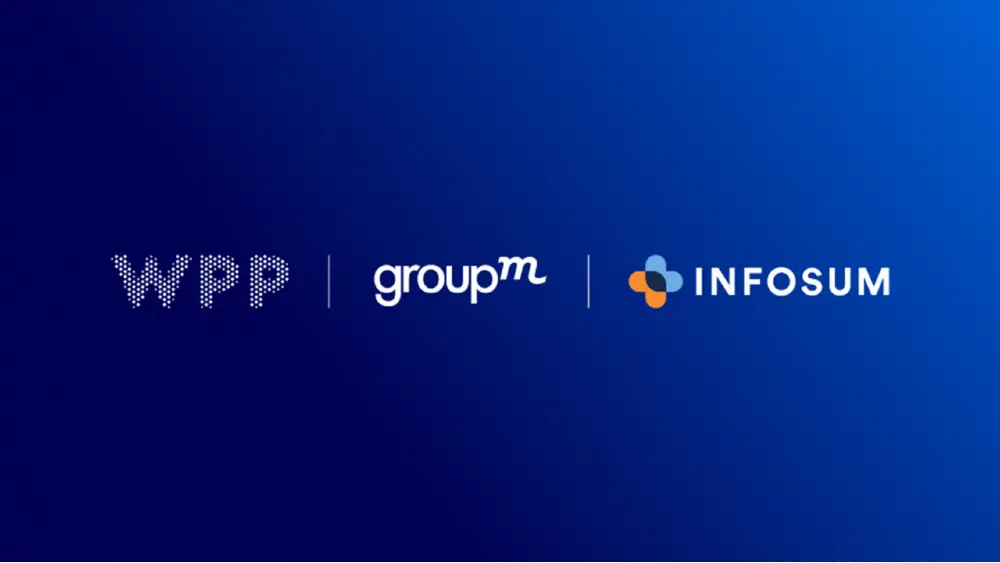WPP acquires InfoSum: Pivoting to data privacy and AI-driven marketing
WPP acquires data clean room pioneer InfoSum to advance its AI-driven marketing approach, challenging traditional identity-based data strategies.

WPP has acquired InfoSum, a specialist in data clean room technology, for a deal estimated to be worth around US$63 million based on reports from the investment group Chrysalis. The acquisition, announced on April 3, 2025, solidifies WPP's strategy of prioritizing data connectivity over traditional identity-based approaches in the evolving martech landscape.
InfoSum will be integrated into Choreograph, the global data company within GroupM, WPP's media investment business. The move completes WPP's vision for what it calls "Intelligence Beyond Identity" – a strategic approach that emphasizes connecting diverse data sources rather than relying on user identity profiles.
What are WPP and InfoSum?
Founded in London and now among the world's largest advertising holding companies, WPP provides a range of services including communications, advertising, PR, and commerce solutions. Under CEO Mark Read's leadership, the company has been rapidly expanding its AI capabilities, including the recent acquisition of Stability AI (developer of Stable Diffusion) and a US$300 million investment in its AI platform WPP Open.
InfoSum, also London-founded, specializes in data collaboration technology that allows companies to access insights from various data sources without actually moving or exposing the underlying data. This "federated learning" approach maintains stronger privacy controls while still enabling sophisticated data analysis. InfoSum's technology is designed to work across clouds, creating what the company calls a "non-movement of data" model where information remains in its original location while still being usable for insights.
Lauren Wetzel, InfoSum's CEO, describes the company's mission as "acknowledging and calling out the way data has been used to power data-driven advertising. It has just never been the right method. Handing data over, moving data, leakage of data: it's not good for privacy. It's awful for security."
Why this matters for marketers
The acquisition comes amid a fundamental split in how marketing holding companies approach data. WPP is clearly betting on a strategy that moves away from traditional identity-based approaches that collect vast numbers of user profiles, instead focusing on connecting various data sources without centralizing them.
For marketers, this has several implications:
- Privacy-first approach: As regulations tighten and consumer concerns grow, InfoSum's technology allows marketers to derive insights without compromising data privacy, reducing legal and reputational risks.
- AI-driven marketing intelligence: The integration enables WPP clients to use federated learning techniques to build custom AI models using their first-party data and the broader InfoSum network, which includes data from media platforms like Netflix, News Corp, and Samsung Ads.
- Faster insights to activation: WPP claims the technology will enable "delivering measurable improvements in campaign performance within hours rather than weeks."
- Cookie deprecation preparedness: With third-party cookies being phased out across browsers, WPP positions this approach as "leapfrogging traditional identity-based solutions" that rely on "decades-old, deteriorating databases."
What is WPP and InfoSum's traction?
WPP remains one of the world's largest marketing services groups, though it was recently overtaken by Publicis Groupe as the world's biggest ad company. WPP employs approximately 109,000 people across 110 countries and reported revenue of £13.8 billion in 2023.
InfoSum's extensive data network represents "hundreds of billions of data signals" according to the company, with partnerships including major media platforms (Channel 4, DIRECTV, ITV, Netflix), data providers (Experian, TransUnion), and retailers globally. The company had previously raised over US$90 million in funding since its founding in 2016.
The acquisition is part of a larger trend of marketing holding companies investing heavily in data capabilities. According to Jay Pattisall, principal analyst at Forrester, "The pattern is clear: Omnicom acquires IPG in part for Acxiom to power Omni. Publicis acquires Lotame to bolster CoreAI. WPP acquires InfoSum to power WPP Open. In the near future, clients will no longer buy the agency, but rather the agency's algorithm for advertising, media and experience activation."
Who are WPP and InfoSum's competitors?
The acquisition pits WPP against rival approaches from other holding companies:
- Publicis Groupe: Recently acquired data shop Lotame, which added 1.6 billion user profiles to their system. Publicis, through their Epsilon acquisition and now Lotame, has doubled down on the identity-based approach that WPP is explicitly rejecting. Scott Hagedorn, Publicis's chief solutions architect, has argued that "Without an identity footprint, marketers can't really do modern marketing."
- Omnicom/IPG: The recently merged company combines IPG's Acxiom with Omnicom's resources to power their Omni platform, following a similar identity-first approach to Publicis.
- Other data clean room providers: Companies like Habu, LiveRamp, and Snowflake offer competing data clean room technologies, though they typically lack the integrated media and creative capabilities of WPP. Many of these specialized martech solutions are part of the rapidly growing 12 martech companies with great tools for global teams.
As Nicole Greene, VP and analyst at Gartner specializing in AI, notes, "AI requires quality data, so it's no surprise that holding companies are racing to position themselves for the AI-enabled advertising future. The battle lines are drawn around privacy, security and the depth of consumer insights."
The acquisition accelerates a philosophical divide in how marketing giants approach customer data, with WPP betting that the future lies not in amassing more user profiles but in connecting diverse data sources more intelligently while preserving privacy.



